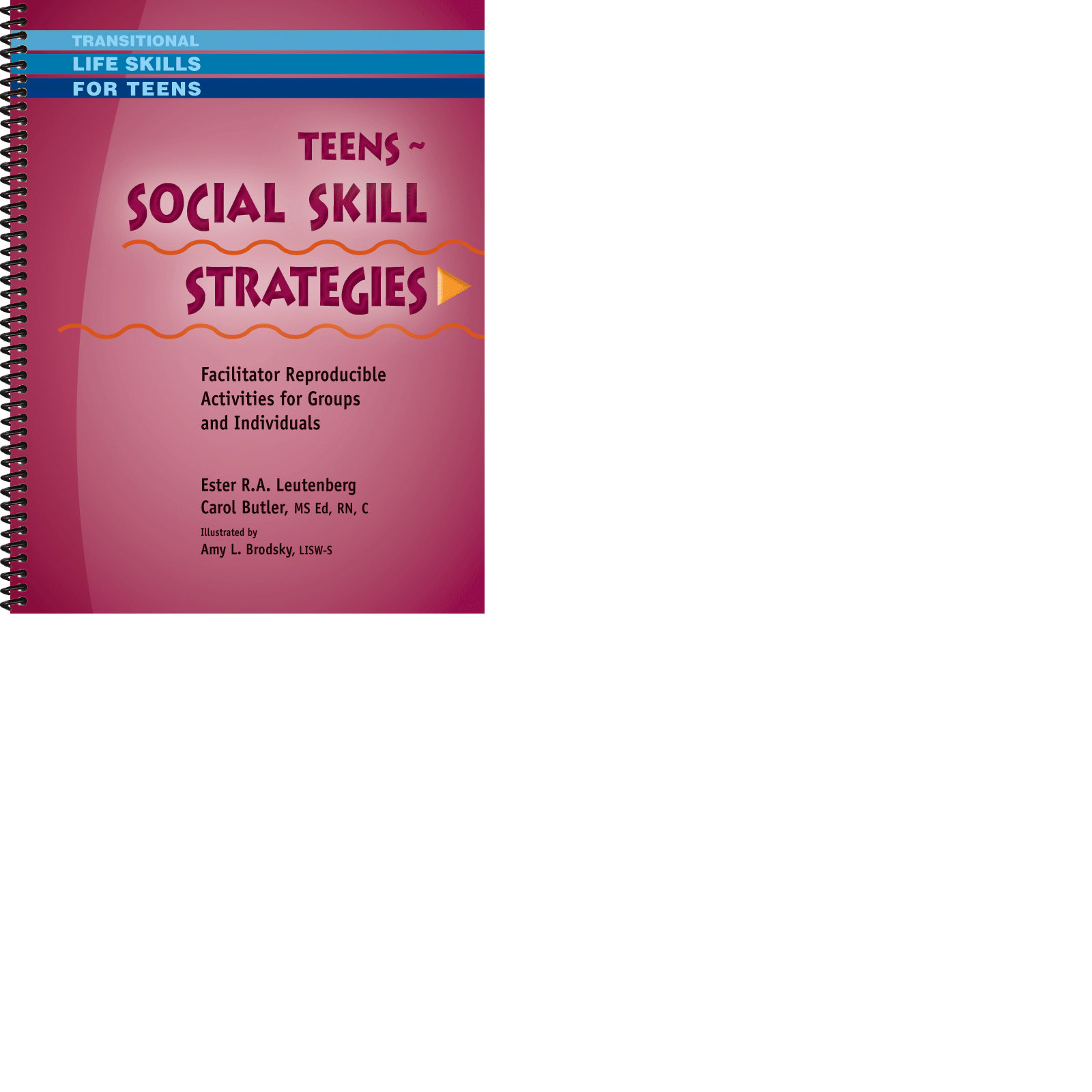Please specify the quantity of product(s).



Teen Social-Skills Strategies Workbook
| Item | Product | Price | QTY |
|---|---|---|---|
| 32766 | Teen Social-Skills Strategies | $50.00 |
Help Teens Develop Social Skills that Will Positively Impact All Other Facets of Their Development
Ester R. A. Leutenberg & Carol Butler, MS Ed, RN, C
138 pages
Social skill development is essential for individuals to be successful. Social skills are more than just manners and etiquette. This workbook provides guided exercises, interactive games, introspective drawing and writing, mock videos, role plays, panel discussions, press conferences, through drama, music, pantomimes and other activities to help teens learn and develop social skills in a fun and interactive way- the only way to build social skills. This workbook provides everything a clinician would need to run a group, individual, or family session in treatment or for an educator to facilitate a health class.
In Teens – Social Skill Strategies, teens learn by doing, from each other, and through thought and feedback. Real life comes to the classroom, group room or individual space as teens practice new skills and begin to change negative behaviors. Awareness of societal expectations, empathy, ethics and altruism are not taught but are lived, through simulated and actual situations. Verbal and non-verbal communication, social graces, the desire to fit in, diversity, inclusion, finding and being a friend, family relationships, forgiveness, first love, breakups, humanitarianism and other topics are featured. Social issues, including abuse prevention and other topics are addressed.
Seven Chapters, four to ten sessions per chapter, (total of forty-seven) encompass the following:
1. Communication
Body language, personal space, behavioral cues, active listening, conversations, first impressions, communication starters and stoppers, assertiveness and negotiation skills.
2. Expectations
Technology, social networking, mealtime, introductions, first dates, events, travel, condolences, diplomacy, job interviews, work relationships and sportsmanship.
3. Fitting In
Parent/caregiver issues, excessive people pleasing, acceptance of self and others, respectful disagreement, shyness, positive personality traits, newcomers, diversity and multicultural contributions to society.
4. Friendship
Positive peer support, non-aggression, frenemies, influence of words and actions, friendship lyrics, envy and jealousy, and helping a person in crisis.
5. Family
Traditional and non-traditional family styles, changes at home, sibling rivalry, respect for authority without fear or rebellion, and forgiveness.
6. Teen Love
Healthy and unhealthy relationships, parent/caregiver concerns, first love, expression through art and poetry, dating dilemmas, breakups and power principles.
7. Caring
Empathy, social causes, creative fundraisers, ways to help at home, school, community, etc., advocacy in action, leadership as a passion to serve versus self-serving power.